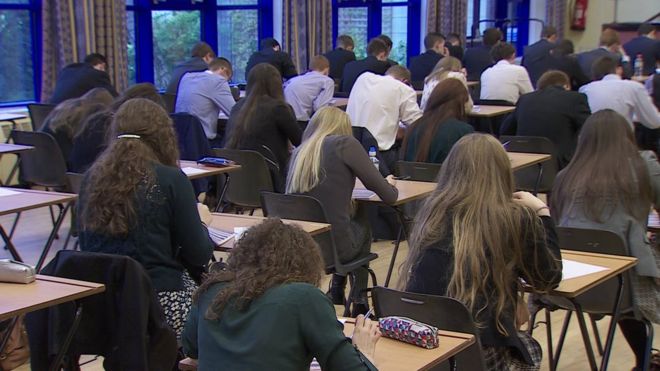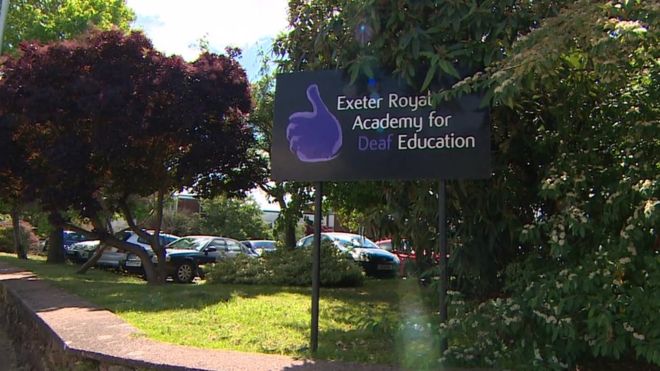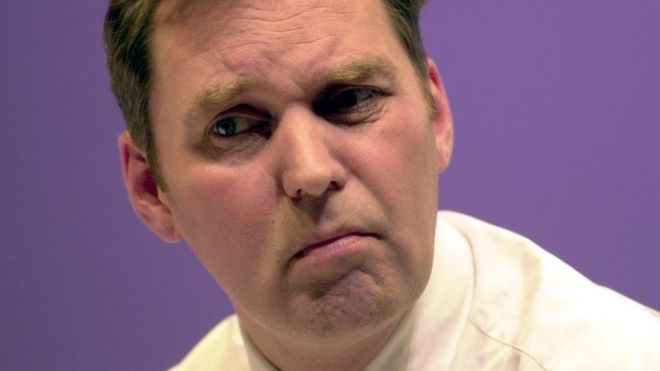
- A cancelled government education scheme helped thousands of pupils improve their English and maths results.
- The literacy and numeracy signature programme ran from 2013 to 2015 but was not renewed due to a lack of money.
- It helped almost 19,000 pupils, provided jobs for 310 new teachers and gave extra staff to hundreds of schools.
- The final report on the second year of the programme has just been published by the Department of Education (DE).
- Funding
- It received £13.8m funding from the Office of the First and Deputy First Minister (OFMDFM) and an additional £1.9m from DE.
- The scheme was targeted at pupils in both primary schools and post-primary schools who were struggling to reach basic standards in English and maths.
- Only newly-qualified teachers could apply for the jobs, which were for a two-year period.
- The final report reveals that of pupils helped by the scheme:
- 76% of primary school pupils reached level four or above in English, the expected skill level at the end of primary school;
- 80% of primary school pupils reached level four or above in maths;
- 65% of post-primary pupils got a GCSE grade C or above in English;
- 60% of post-primary pupils got a GCSE grade C or above in maths.
- Implications
- A majority of pupils supported by the programme also improved their attendance at school.
- Almost nine out of 10 primary schools that took part said the signature programme was successful.
- Eight out of 10 post-primary schools also reported that it had benefited pupils.
- Chris Donnelly, the principal of Holy Cross Boys’ Primary School in Belfast, said the programme had a proven impact on his pupils, with teachers working with them in small, tutorial-style groups.
- “One of the keys to the success of [the scheme was that] it wasn’t necessarily targeting the children who would be deemed the low attainers, like so many of the initiatives in schools do,” Mr Donnelly said.
- Aims
- “It was targeting children who were underachieving – that’s a distinct cohort of children, and we were able to see the success.
- “Schools are going to now feel the pinch, and unfortunately initiatives like this and their legacies that are going to suffer.”
- The final report said the signature programme had “far-reaching implications”.
- “Not only were the original aims achieved but the programme produced a number of outcomes and made a positive impact in our schools,” it said.
- It was revealed that the signature project was ending in June 2015, although some school principals had called for it to be extended.
- [Source:- BBC]
April 2024

University research should have more impact with the wider public, says a review of how billions of pounds of UK research funding is awarded.
Economist Lord Nicholas Stern has published a review of how to measure the quality of university research.
He also wants all research staff to be assessed, rather than allowing universities to submit their own selection of academics.
Research is vital to economic growth, says Universities Minister Jo Johnson.
Lord Stern’s independent review examined the mechanism for measuring university research – the research excellence framework (REF) – which is used to determine the allocation of funding.
In 2015-16, this was worth £1.6bn to universities and the ratings from the REF are used to decide funding for the following five years or more.
The next round of assessments will be used for allocating funding from 2020 – and could be even more significant for universities worrying about the future of European Union research funding.
Lord Stern, president of the British Academy, says he wants a wider interpretation of research “impact” so that it shows “influence on public engagement and culture”.
He also wants to stop universities from playing the system to appear higher in the rankings.
He is recommending that all research staff should have to submit work for assessment, rather than allowing universities to put forward a small selection of their academics.
There were warnings of universities seeking to artificially boost their position by recruiting high quality researchers shortly before the date of the assessment.
Lord Stern’s review also wants to reduce the bureaucratic burden. The last round of the information-gathering process, completed in 2014, cost £246m to administer.
Wendy Piatt, director general of the Russell Group, said assessing all research staff “will be helpful in minimising the risks of game-playing”.
But Maddalaine Ansell, chief executive of the University Alliance group of universities, said the assessment process “must not just reward universities with the highest numbers of research-active staff”.
She said that there could be significant variations in how much time staff spent on research, when some staff might be more engaged with teaching or on contracts with business.
Pam Tatlow, chief executive of the MillionPlus group of universities, said the recommendations would encourage staff to be focused either on research or teaching, which would “drive a further wedge between teaching and research”.
But she welcomed the suggestion that impact “should be more broadly defined”.
London challenge
In the 2014 research rankings, London universities were found to be challenging the dominance of Oxford and Cambridge.
The London School of Economics had the highest proportion of world-leading research, followed by Oxford, Cambridge, Imperial College and University College London.
The biggest financial winners from the 2014 results, based on the research of 52,000 academics, were forecast to be Oxford, University College London and Cambridge.
The government also has plans to introduce a parallel system for measuring the quality of teaching, called the teaching excellence framework (TEF).
These teaching assessments will be linked to allowing universities in England to charge higher tuition fees.
Mr Johnson said he welcomed proposals for the research excellence framework that could “reduce the burdens on academics” and which could make improvements on previous assessments.
“Lord Stern recognises the advantage that our world-class research base brings to the UK and the key role our universities play in delivering high-quality teaching, driving productivity and economic growth,” he said.
[Source:- BBC]

Science careers are not “boring or only for boffins”, says Prof Brian Cox.
The physicist and TV presenter says it annoys him “that people still have these perceptions”.
Prof Cox has lent his support to Engineering Open House Day where major engineering organisations open their doors to the public.
The aim of the event, at the end of the first full week of the school holidays, is to boost children’s enthusiasm for science and technology subjects.
More than 20 organisations threw open their doors to allow families a free inside view of how they use technology on an everyday basis.
The events ranged from a behind-the-scenes tour of London’s Crossrail right down to the platform level 30m below the surface, to a ride on an articulated truck at the Caterpillar test quarry at Peterlee in County Durham.
Organisers at the Institution of Engineering and Technology (IET) believe up to 1,500 parents and children aged eight and above, have taken part, in venues across England and Scotland.
Events included:
- a glimpse backstage at the National Theatre in London, to see the engineering behind top shows
- a chance to see how the Sellafield nuclear power plant uses robot arms and computers
- a go at the BBC Microbit coding challenge
- a look behind the scenes at how TV satellites work.
An IET survey of more than 1,000 primary age children, published on Friday, suggests more than two-thirds enjoy science, technology and maths subjects.
But too few young people continue to study these subjects after 16, says the IET.
It is crucial that parents support their children, particularly girls, if they show an interest in science, technology, engineering and maths, according to IET president Naomi Climer.
“Some parents have told us they do not feel equipped with enough knowledge and this plays a part in why kids are not encouraged at home about science and engineering jobs. We have to change that.”
Prof Cox added: “I think it’s really important that young kids and their parents can get an insight into what engineering is all about – and understand its connection with so many things that interest them like music, entertainment and space discovery.”
[Source:- BBC]

After several futile attempts to revive the company’s old appeal, Yahoo has now announced that it is selling most of its core services to US telecommunications giant Verizon. This marks as the end of an era for a company that once defined the Internet. Yahoo was at its most successful in the 90s, but its failure to keep up with the emerging trends contributed to its downfall. The other major factor that caused this fate was a series of missed opportunities by its executives. In 1998, Google’s Larry Page and Sergey Brin had approached Yahoo, with an opportunity to buy its PageRank system for as little as $1 million. The duo wanted to focus on their studies at Stanford, but Yahoo showed no interest as it wanted users to spend more time on its own platform.
PageRank is an algorithm designed by Brin and Page that ranked websites for the order they are displayed in Google search results. It is named after Larry Page, and is a way of measuring the importance of websites. While PageRank helped in showing up search results of relevant third-party sites based on keywords, Yahoo did not want users to leave their platform at all. It had directories that were designed to answer questions, view email, shop and even play games on its platform – something that seemed to work well for them at that time.
However, as time progressed the online world soon began to realize the importance of third-party online advertising revenue. Google built its own pay-per click service called AdWords back then, and is now the key reason for Google’s rags to riches story. In 2002, Brin and Page went to Yahoo once again, this time to raise funds worth $3 billion. However, then Yahoo Chief Terry Semel refused the offer as it looked to again build its own search engine to compete with Google. Yahoo acquired search engine Inktomi and ad revenue maker Overture in its mission to build the search engine that would topple Google.
However, Yahoo failed miserably in execution, and fell to its own demise. While Yahoo’s absorption into Verizon’s AOL Internet business is now the new reality, Semel and his board of directors must surely lament all the wrong and over-ambitious decisions they made in the past. If Yahoo had agreed on the deal with Google co-owners in its nascent days, Yahoo’s fate would possibly hold a different story.
Google aka Alphabet is now one of the world’s most valuable companies, with its worth nearing $500 billion. In comparison, the latest deal reveals that Yahoo’s core business was worth just $4.83 billion.
[Source:- gadgets.ndtv]

Digital payments market size in the country is expected to touch $500 billion (roughly Rs. 33,63,762 crores) by 2020, accounting for about 15 percent of gross domestic product (GDP), a report said on Monday.
The ‘Digital Payments 2020’ report, jointly published byGoogle and Boston Consulting Group, projects that non-cash contribution in the consumer payments segment will double to 40 percent.
“The smartphone explosion will usher in a new era in digital payments in India over the next few years that will see digital payments exceed $500 billion by 2020 and non-cash transactions exceed cash transactions by 2023,” said Alpesh Shah, Senior Partner and MD, Boston Consulting Group.
He also said contribution of digital payments would be 15 percent to the country’s GDP.
The report notes that 81 percent of existing digital payment users prefer it to any other non-cash payment methods. “It is telling that half of India’s Internet users will use digital payments and that the top 100 million users will drive 70 percent of the gross merchandise value,” Rajan Anandan, VP South East Asia and India, Google, said.
Online shopping, payment of utility bills and buying movie tickets have emerged as the top three user activities.
The report also said 90 percent of Indian consumers are likely to use digital payments for both online and offline points of sale such as unorganised retail, eateries and transport.
Micro-transactions will form a substantial portion of the industry with over 50 percent of person-to-merchant transactions expected to be under Rs. 100, the report added.
The value of remittances and money transfer that will pass through alternative digital payment instruments will double to 30 percent by 2020, it said.
[Source:- gadgets.ndtv]

The White House on Tuesday issued the US government’s first emergency response manual for a major cyber-attack, though some officials acknowledged it lacked clear guidance on possible retaliation against hacker adversaries.
The Obama administration, which created a federal cyber chief position in February that has not yet been filled, published a “presidential policy directive” that includes a five-level grading system.
No hack attack so far has hit level five, a source familiar with the policy discussions said. That would be reserved for a threat to infrastructure, government stability or American lives.
A hack on the Democratic National Committee (DNC), which the FBI is investigating, would likely earn a lower grade, depending on any foreign government involvement or intent to meddle in the presidential election.
Cyber-security experts and US officials said on Monday there was evidence Russia engineered the release of sensitive DNC emails to influence the Nov. 8 election between Democrat Hillary Clinton and Republican Donald Trump.
The Kremlin dismissed the allegations that it was involved as absurd.
The presidential directive was years in the making and provides the first public guidance on specific roles for federal agencies in responding to a major breach that, for instance, could disrupt a large big bank or knock an urban power grid offline.
Cyber threats are “growing more persistent, more diverse, more frequent and more dangerous every day,” White House counter-terrorism adviser Lisa Monaco said at a cyber conference in New York on Tuesday.
She said the directive “will help answer a question heard too often from corporations and citizens alike – ‘In the wake of an attack, who do I call for help?'”
Officials within the administration of President Barack Obama, a Democrat, said the guidelines fall short of describing how Washington should hit back against significant attacks that do not kill anyone but cripple an electrical grid or the financial system.
Three current US national security officials, who spoke on condition of anonymity, said that so far the administration has not defined the point at which a cyber-attack justifies a military response.
“Is it worse than what a bomb could do, and if we decide it is, what’s the appropriate response?” one of the officials asked.
Threats
The directive defines a significant cyber incident as one likely to harm national security or economic interests, foreign relations, public confidence, health safety or civil liberties, according to a White House fact sheet.
Obama has focused on cyber-security in his second term, marked by hacks on government agencies and private companies that exposed personal information of millions of people.
Crafting clear rules for hitting back at a cyber adversary has been inhibited by how hard it is to definitively attribute an attack, officials said, and over concerns that a proportionate response could escalate into an all-out cyberwar.
“Those are not necessarily conversations we’re going to have in public,” a senior administration official said when asked about why the directive does not specify countermeasures.
The magnitude of any response will be determined by the severity assigned to an attack, the White House adviser Monaco said.
Obama signed an executive order in April 2015 that allows for the US to levy economic sanctions directly in response to cyber-attacks. That authority has never been used.
The new directive largely codifies existing practices and norms, rather than changing policy, said Ari Schwartz, a former top cyber-security adviser at the White House who is now with the law firm Venable.
The Department of Justice, working through the Federal Bureau of Investigation and the National Cyber Investigative Joint Task Force, will be the lead agency for investigating criminal intrusions or those that could affect national security, according to the policy.
The Department of Homeland Security will serve as the lead contact in helping companies respond to breaches of their networks. Intelligence agencies will be in charge of gathering information in order to identify who is behind an attack.
Senators Chuck Grassley and Patrick Leahy, the Republican and Democratic leaders of the Senate Judiciary Committee, respectively, asked the Justice Department and the FBI for information on the DNC hacking probe.
The senators wrote in letters to the agencies that if foreign intelligence agencies were trying to undermine the electoral process, “the US government should treat such efforts even more seriously than standard espionage.”
[Source:- gadgets.ndtv]
Deaf children “allowed to engage in sexual activity”, whistleblower says
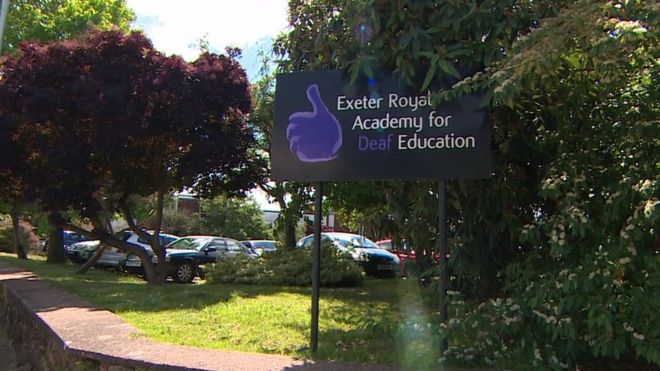
Children at a school for the deaf were mishandled by staff, allowed to misbehave and engaged in sexual activity, a whistleblower has said.
Devon and Cornwall Police are now investigating the claims made against Exeter Deaf Academy.
The BBC understands three staff members have been suspended, but the school would not confirm this.
The academy said it would act “quickly if it is found that any improvements need to be made”.
More updates on the claims, and other Devon news here
Restrain children
Sources from the inquiry told the BBC they received a letter from the whistleblower detailing claims which included staff drinking alcohol on residential trips.
It is claimed the drinking led to a lack of supervision of students who engaged in sexual activity.
The letter also alleges excessive force was used to restrain children, along with techniques that were not authorised by regulators.
The concerns were raised, the letter says, but not dealt with.
The allegations prompted Devon and Cornwall Police and Devon Social Services to launch an investigation.
Exeter Deaf Academy said: “We continue to cooperate fully with the ongoing investigation by Devon County Council and Devon and Cornwall Police and cannot and should not comment until this is complete and the facts have been properly established.
“We care deeply about the welfare of our students, and will act quickly if it is found that any improvements need to be made at the Academy.”
The academy – a mixed, residential facility that currently has 76 students aged between four and 24 – would not comment on whether or not any staff had been suspended.Devon and Cornwall Police said: “We are not yet in a position to comment regarding whether there have been any criminal offences or other breaches of legislation, however, the safety of the students is paramount and we will work together to ensure that a thorough investigation is conducted.”
Devon County Council said it was “working closely” with the police and the academy’s chief executive.
The latest report by the regulator Ofsted, in February this year, was critical of the academy saying it “requires improvement”.
[Source:- BBC]
Universities have been told to deal more fairly with students by the Competition and Markets Authority.
Some “still have work to do” to fully comply with consumer protection law, says CMA senior consumer director Nisha Arora in an open letter.
The CMA has already “taken targeted action” to improve practices at three universities, the letter to all higher education providers says.
The government must “hold universities to account”, said consumer group Which?
In March last year, the CMA set out how universities should comply with consumer law.
This included providing information to allow students to compare courses, and some institutions were asked to amend their practices accordingly.
In October, the CMA began a review of institutions to check their compliance with the rules.
After taking soundings within the sector, the review focused on 25 for closer study.
Of these, three were singled out for improvements, says the CMA.
For example:
- University of Buckingham will no longer threaten, apply or rely upon academic sanctions to recover accommodation fees, library fines or other non tuition fee debts
- Bucks New University will drop a contract rule which invalidates student complaints if they attend a graduation event
- Birkbeck University London will no longer apply a rule which stops students using the complaints procedure if they have tuition fees debt.
There were many examples of positive changes, the review found, including:
- updated policies and terms to end academic sanctions when students are in non-academic debt
- clear and upfront information to students on fee changes, additional costs and possible course changes
- better information for staff on consumer protection obligations.
The review warns that universities could be in breach of consumer law for the wording of contract clauses which:
- allow wide discretion to vary tuition fees or cancel or vary courses
- are not clear about additional costs
- prevent students progressing or graduating if they owe non-academic debts
- attempt to deter complaints.
In the letter, Ms Arora says that the CMA has not reviewed all higher education providers so these concerns may be prevalent in the sector.
She therefore urges universities to review and change their contracts and policies to make sure they comply with the law.
In a statement, she welcomed the “constructive” commitments made by the three universities and the action taken by other institutions to improve their compliance with consumer protection law following last year’s review.
“For most students going to university is an expensive, once-in-a-lifetime event and one where they should receive the best possible experience,” said Ms Arora.

Alex Neill, director of policy and campaigns at Which? said choosing a university was one of the biggest decisions young people make, “yet they often struggle to find the information to enable them to make an informed choice”.
“The CMA’s investigation shows that while some universities are taking steps in the right direction, others still have a way to go.
“The government must ensure that all universities comply with consumer law and give the proposed new Office for Students the powers it needs to hold universities to account who fail to do so,” said Ms Neill.
Professor Rebecca Bunting, vice-chancellor of Buckinghamshire New University, said it had been contacted by the CMA in March 2016 and asked that it address “a number of questions around our compliance with consumer rights law in relation to documents published on our website”.
Prof Bunting added: “This process has provided the university with a constructive opportunity to ensure our policies and procedures are fully up to date and in compliance with the relevant legislation.”
A Buckingham University spokeswoman said it was confident that its contracts, complaints procedures and information to students were now fully consistent with CMA guidance.
A Birkbeck spokesman said the university was “committed to providing clear and accurate information for applicants and students and has been happy to work constructively with the CMA to give even greater clarity”.
[Source:- BBC]

A debate in Algeria about plans to switch to teaching science in the French language is raising arguments about the country’s cultural identity.
Education minister Nouria Benghebrit has suggested that teaching in French could improve students’ results.
Universities in Algeria teach science in French, but schools teach in Arabic.
There have been concerns that students face a language barrier when they are taught in French at university, with many failing in their first year.
But opponents of such a change have argued that this would damage the identity of the North African country’s Arab majority.
The plans have suggested that maths, physics and natural science subjects in secondary schools should be taught in French.
The intention would be to make a smoother transition to French-speaking university courses. It could make it easier for students, who at home might speak dialects of Arabic or Berber, and who might struggle to switch to French when they reach higher education.
But opponents of changing to French have criticised a “divorce from identity” which would disconnect young people from their cultural roots.
There have been suggestions that universities should switch to Arabic, rather than schools switch to French. There have been other calls that English should be adopted as a more widely used international language of science.
The controversy over language has stirred arguments about the relationship between Algeria and France, the former colonial power.
Even though Arabic is the official language of Algeria, universities are still teaching courses in French, more than 50 years after independence.
[Source:- BBC]
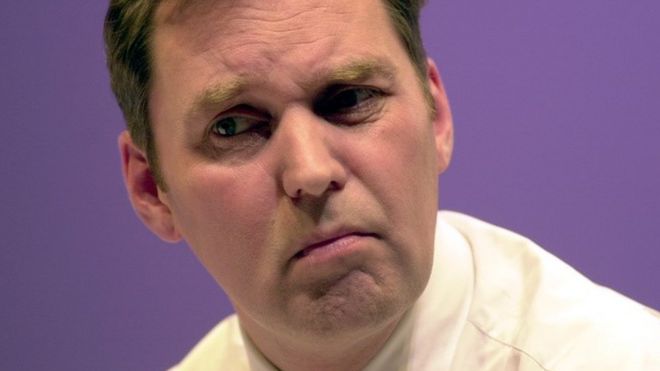
Ministers must put education policy at the centre of the drive to deliver social mobility, the Social Mobility Commission chairman has said.
Alan Milburn said an education system in England that left many lacking the skills they needed in the modern labour market must not be tolerated.
He called for a new target that by 2020 at least half of children from poor homes should achieve five good GCSEs.
Ministers say they want every child to reach their full potential.
Speaking at Teach First’s Impact Conference, Mr Milburn also suggested:
- scrapping tuition fees for teacher training and housing support for existing teachers who worked in the worst schools in disadvantaged areas
- the lowest performing 20% of schools were given intensive support or had wholesale change in leadership if they continued to fail
- introducing a new school performance measure in 2018 to track pupil’s destinations into work or continued education
Mr Milburn said at current rates of progress, it would take at least 30 years for the educational attainment gap in schools between poorer and better-off children to halve.
And it would take more than 50 years before the gap in access to university was closed.
He told the conference: “The truth about our country is that over decades Britain has become wealthier but we have struggled to become fairer.
“The introduction of the pupil premium and other reforms are positive steps in the right direction.
“However, efforts to narrow the attainment gap within schools are not being given equal priority to the focus there has been in recent decades on raising the bar of improving all schools. They have to be doing both.
“We should no longer tolerate an education system that produces a cohort of youngsters who simply lack the skills to compete in the modern labour market.
“It will be impossible to make progress in improving social mobility until the educational attainment gap between less well-off and better-off children is closed.
“Our future success in a globally competitive economy relies on using all of our country’s talent not just some of it.”
Brett Wigdortz, founder and chief executive of Teach First, said: “Educational inequality is a slow burning injustice that goes unnoticed, but threatens the very fabric and foundations of a fair society.
“The fact that a child from a poorer background is less likely to succeed at school and life is totally at odds with a British sense of fair play.
“Following Brexit, it’s clear we need to invest in education, the communities and young people that have been left behind if we are to build a better Britain.”
A spokesman for the Department for Education said: “This government is focused on making Britain a country that works for everyone.
“We are determined that every child, regardless of background, gender or ability, has an equal opportunity to reach their full potential.
“The pupil premium, now worth £2.5bn a year, is being spent to improve the education provided to children from the poorest backgrounds.”
[Source:- BBC]

